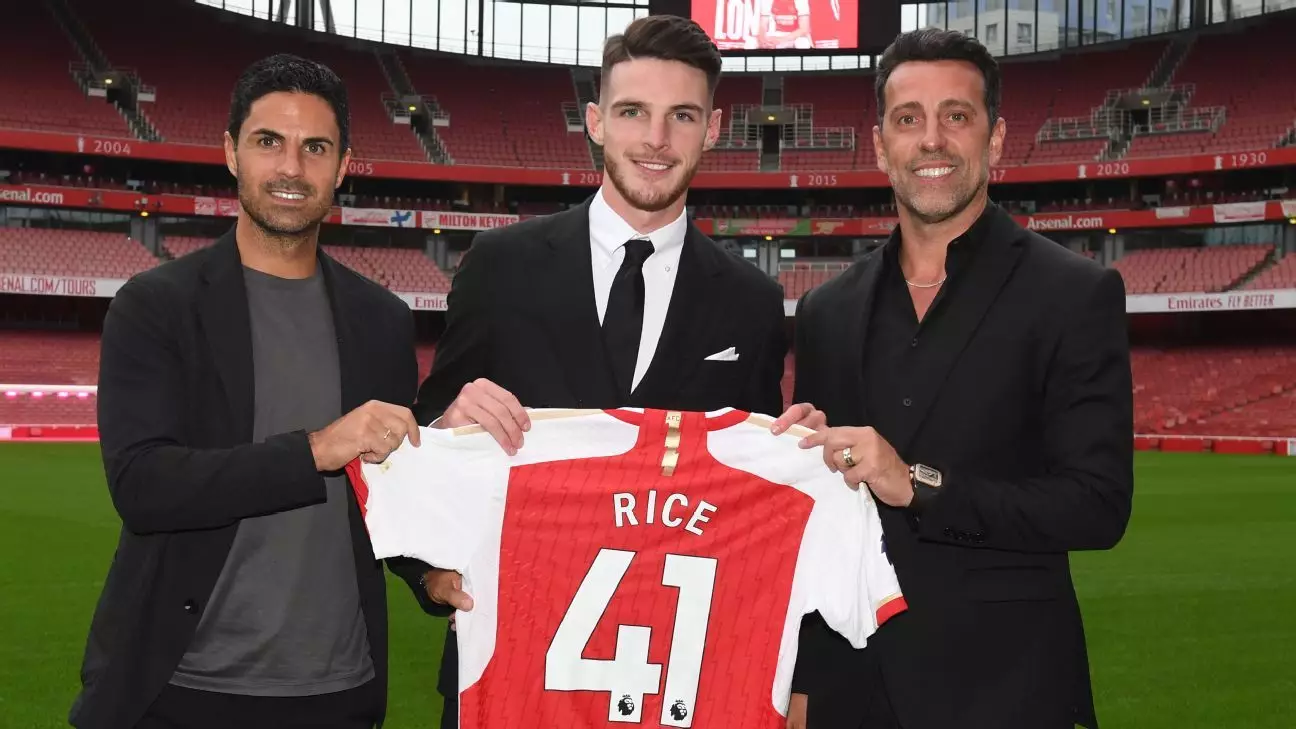On September 12, Arsenal FC celebrated a significant moment when manager Mikel Arteta signed a new contract. In a heartfelt statement, Arteta lauded sporting director Edu Gaspar, recalling how Edu was the first to reach out to him, expressing unwavering confidence in his abilities. “He made a big call to put all the trust he had in me to drive this massive boat in the direction and the way we both had a vision to do it,” Arteta remarked, highlighting their collaborative vision for the club. However, in a shocking turn of events, less than two months later, Arsenal announced that Edu would leave to take the helm of a multiclub model linked to Nottingham Forest’s owner, Evangelos Marinakis. This abrupt departure has sparked questions regarding Edu’s impact on the club and what lies ahead for Arsenal after his exit.
Edu joined Arsenal in 2019 after a successful stint as Brazil’s technical director. His prior experience made him a welcomed addition to the Gunners, particularly during a challenging transition period for the club following Arsène Wenger’s departure. Arsenal was keen on infusing more sporting expertise into its management, and Edu seemed to exemplify that ambition. Initially, his transfer decisions raised eyebrows among fans, particularly concerning his close relationships with certain player agents. However, the landscape shifted dramatically with the arrival of Arteta as head coach in December 2019. The duo instituted sweeping changes within the squad, shedding underperforming players and making strategic acquisitions that revitalized the club.
Under Edu’s guidance, Arsenal not only showed significant improvement on the pitch but also began to reclaim its standing as a competitive force in English football. Promoted to sporting director in November 2022, Edu assumed a more comprehensive role, with responsibilities spanning the men’s and women’s teams and the academy. His influence extended beyond the transfer market; he was involved in key training facility upgrades and played a crucial role in fostering a supportive environment for Arteta.
The Shock of His Departure
Edu’s decision to resign has left many at the club perplexed. Sources indicate that while fluctuating rumors of interest from abroad had been treated informally, the reality of his departure caught many off guard. Internal discussions within the club began merely weeks prior, yet Edu maintained a level of discretion regarding his intentions. His announcement came suddenly, stirring emotions and surprise in equal measure. “There was no indication at that stage that he had a formal offer to consider,” stated one insider, underscoring the abrupt nature of Edu’s exit.
Although some minor disagreements had emerged surrounding potential signings, they were not unusual in the realm of football management, and certainly not perceived as reasons for dismissal. However, it appears that Edu received a lucrative offer that entailed a more expansive role at multiple clubs, a prospect that undoubtedly swayed his decision. Arsenal’s hierarchy reportedly made a counteroffer, yet Edu’s mind was already set on his new venture, leading to a bittersweet farewell during his final address to staff and players.
Arsenal now faces a crossroads. Edu’s departure creates uncertainty in the club’s strategic direction and demands immediate attention. As they search for a successor, there is an evident gap left by a figure who played an integral part in reshaping the club’s ethos and competitive drive. The management unit led by Arteta must navigate this transition period without the guiding influence of a trusted ally.
In the interim, Jason Ayto, Edu’s assistant, will take on additional responsibilities. There is optimism within the club regarding a seamless transition, given Ayto’s prior experience in reorganizing the scouting network. However, the absence of a clear succession plan raises legitimate concerns about continuity and future objectives. Additionally, with the January transfer window approaching, Arsenal’s management must adopt a cautious approach rather than impulsively attempting to fill the void left by Edu.
The circumstances surrounding Edu’s departure may either serve as a significant bump in the road or foreshadow a more profound disturbance in Arsenal’s quest for success. Arteta remains publicly optimistic, insisting that the club’s vision and commitment are still intact. Yet, the key question remains: has Arsenal lost an essential part of its revolution just as it was poised to reestablish itself at the top of the English game? As the search for a new sporting director commences, fans and insiders alike will be watching closely. Arsenal’s future trajectory depends heavily on how adeptly they can manage the void left by a favorite figure who was once an essential catalyst for their resurgence.

